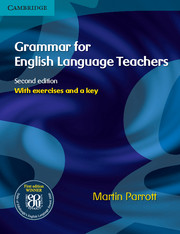Summary
Key considerations
In recent decades many linguists have questioned the traditional distinction between ‘grammar’ and ‘lexis’. They argue that this distinction led to a view that language consisted of a set of grammatical ‘structures’ which needed to be learned, and into which – of secondary importance – words should be fitted.
Modern linguists tend to focus on the primary importance of words themselves, arguing that grammatical aspects of the words we use and the meanings they express determine what words and combinations of words can follow them.
In recent decades, too, study of the mental processes involved in storing and retrieving language has focused more on the significance of groups of words that are commonly used together, often referred to as ‘chunks’. It is often argued that language is also largely learned in ‘chunks’, and that in consequence, words should rarely (or never) be taught in isolation.
In looking at how words combine, various problems of terminology arise. Borrowing the term ‘lexico-grammar’ from linguistics, teachers who prioritise vocabulary in their teaching, focusing on chunks and on how choice of words infl uences subsequent possibilities and restrictions in the sentence, often use this term to describe their approach. In this book we avoid the term ‘lexicogrammar’ because it is sometimes associated either with a particular teaching approach or with a particular theory of language. Teachers who do use this term will, nonetheless, find that this chapter addresses the same issues.
Moreover, in exploring how words combine, there is some disparity in how linguists themselves classify and label the distinctions they make. In this book we try to use the terms that teachers most generally use. However, it is important to remember that other terms and other systems of classifying distinctions are possible.
Related chapters throughout this book look in detail at how words combine. This chapter presents a more general overview of the issues, beginning with the most restricted rules for combining words and then considering progressively freer combinations.
Fixed expressions
Functional expressions
When we meet someone for the first time in formal contexts, we often say How do you do? The fact that we can analyse this expression grammatically (question in the present simple tense, etc.) is almost irrelevant to learning it.
- Type
- Chapter
- Information
- Grammar for English Language Teachers , pp. 124 - 136Publisher: Cambridge University PressPrint publication year: 2010



